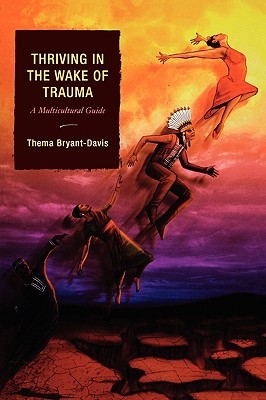
- We will send in 10–14 business days.
- Author: Thema Bryant-Davis
- Publisher: Altamira Press
- ISBN-10: 0759111715
- ISBN-13: 9780759111714
- Format: 15.4 x 22.7 x 1.4 cm, minkšti viršeliai
- Language: English
- SAVE -10% with code: EXTRA
Reviews
Description
Race, ethnicity, sexual orientation, migration status, religion, and numerous other cultural factors play important roles in recovery from traumatic events. Survivors of abuse, dislocation, disease, racism and other forms of trauma, however, are often treated only as individuals rather than as people with diverse beliefs and cultural affiliations. Thema Bryant-Davis examines the cultural issues that health-care professionals need to consider in caring for trauma survivors. She gives specific examples drawn in part from her own work as a clinician, and she describes activities that can help trauma victims not only survive, but also thrive and grow.
EXTRA 10 % discount with code: EXTRA
The promotion ends in 21d.16:38:32
The discount code is valid when purchasing from 10 €. Discounts do not stack.
- Author: Thema Bryant-Davis
- Publisher: Altamira Press
- ISBN-10: 0759111715
- ISBN-13: 9780759111714
- Format: 15.4 x 22.7 x 1.4 cm, minkšti viršeliai
- Language: English English
Race, ethnicity, sexual orientation, migration status, religion, and numerous other cultural factors play important roles in recovery from traumatic events. Survivors of abuse, dislocation, disease, racism and other forms of trauma, however, are often treated only as individuals rather than as people with diverse beliefs and cultural affiliations. Thema Bryant-Davis examines the cultural issues that health-care professionals need to consider in caring for trauma survivors. She gives specific examples drawn in part from her own work as a clinician, and she describes activities that can help trauma victims not only survive, but also thrive and grow.


Reviews